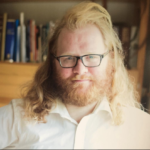| TITLE OF PAPER | Expanding the Borders of Icelandic Politics: The Role of the Women’s Alliance 1983–1999 |
|---|---|
| AUTHORS NAME | Björn Reynir Halldórsson |
| AFFILIATION | Institute of History |
| UNIVERSITY / INSTITUTE | School of Humanities |
| brh19@hi.is | |
| ABSTRACT |
In the years 1983–1999, the Women’s Alliance redrew the borders of Icelandic politics. Building a movement from scratch, several women advanced a new type of discourse on the practice of politics designed to counter a male-dominated political culture. Their methods reflected much creativity as they developed feminist viewpoints on a range of political issues, which had up to then be defined by men, which they, then, sought to put into practice in the political arena. The basis of their ideology was what they termed a “women’s world of experience”. To them, all matters were women’s matters, and they argued that the “left”/“right” conceptual dichotomy was rooted in masculine experiences. By intentionally playing the outsider role, the Woman’s Alliance expanded the political boundaries in Iceland, not only by breaking up a closed political culture and by doing well in parliamentary elections but also by increasing the number of women MPs. Today, some new political movements in Iceland, for example, the Pirate Party, embrace some of the policies that the Women’s Alliance adopted in the 1980s. This paper uses the theoretical framework of contentious politics – coined and developed by Doug McAdam, Sidney Tarrow and Charles Tilly – to analyse how the Women’s Alliance’s claim for increased women’s participation in politics was a driving force behind changes in Iceland’s political system. |
| BIOGRAPHY |
I am a PhD student at the University of Iceland (UI). My doctoral dissertation is on the Icelandic Women’s Alliance, its ideology and political programme, from its foundation in 1983 until it was disbanded in 1999. I received my M.Sc. degree in History from Edinburgh University in 2015, having completed a BA degree in History from the UI a year earlier. As part of my BA studies, I spent one winter in 2011–2012 as an Erasmus Exchange Student in Prague. |
| CO-AUTHORS |
No co-author. |
| KEYWORDS | Women’s Alliance, Women’s world of experience, Political borders, Icelandic Politics, Deconstruction |
| STREAM | 7. Exceeding the Actual: Visions and Spaces for Change |
| COMMENTS |
I am very excited about this conference and hope that it will help me developing my ideas further. |
| PICTURE |  |
| Webpage | |
| @bjornreynir | |
| https://www.facebook.com/bjornreynir |
Home »

























